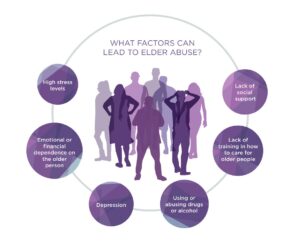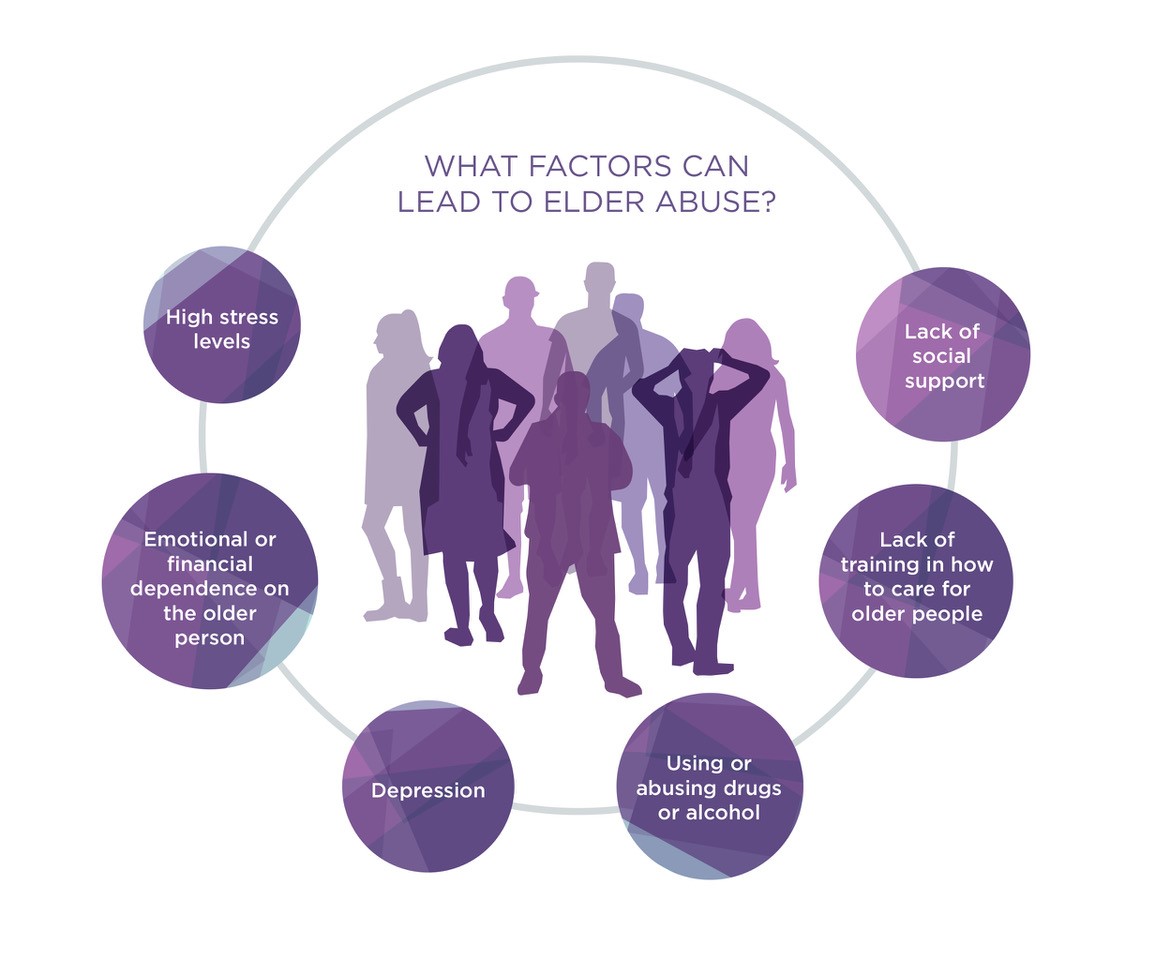
Elder Abuse can be prevented if we understand the conditions that cause it. A just society preserves the safety and dignity of all its members, across the lifespan, but we don’t yet live up to that ideal. Elder abuse is an injustice that erodes older people’s safety and dignity by subjecting them to verbal or physical abuse, neglect, financial exploitation, or sexual assault. Working toward a truly just society means eradicating elder abuse in all forms. We can do that by creating the conditions that prevent elder abuse.
Every day, Elder Services of Cape Cod and the Islands provides community supports that can decrease the likelihood of abuse, neglect or financial exploitation, through programs such as Meals on Wheels, Money Management, Family Caregiver Support and Long Term Care Resident Ombudsman. There are steps you, as an individual, can take as well.

Our communities are at higher risk of elder abuse when social networks are weak or fragmented, when residents don’t know each other well or interact with each other on a regular basis. If neighbors don’t chat about the weather or the price of gas, they aren’t likely to express concern when the mail piles up on the porch or if they overhear an angry dispute.
What are the warning signs?
Warning signs include changes in an older person’s appearance, demeanor, behavior, and routine as well as general signs of low-quality care. Soiled clothing and piles of dirty dishes or laundry, for example may be caused by lack of access to caregivers, overwhelmed family members, or self-neglect. Other warning signs include unexplained injuries, high levels of anxiety, depression or social withdrawal.
Interventions are most effective when they are targeted and timely. To ward off tragedy, construction workers install support beams so buildings can withstand heavy winds, earthquakes, and other disasters. We need to take the same approach with elder abuse. We need social support beams, like home visitation services and vibrant community centers and accessible public transportation, to protect against abuse and neglect. We can all contribute to this effort by understanding the risk factors for elder abuse and mitigating hazardous or unsafe situations before they escalate.
What you can do
Support efforts by your town to provide community-based social supports that remove barriers preventing older people from remaining actively involved in the community. Advocate for resources and services that reduce stress on caregivers, including family members. If we build a stronger social structure around older people, we can reduce social isolation and overcome elder abuse and neglect. If we fail to build, maintain and fund these social structures, it is likely that we’ll all suffer the consequences as we ourselves age.
In your life and in your neighborhood be prepared to act if you see something that concerns you.
- Anyone who has reasonable cause to believe that an elder has been abused or is self-neglecting should report it. Elder Abuse reports can be filed 24 hours a day either online at https://www.mass.gov/reporting-elder-abuse-neglect or by phone at (800) 922-2275. When you call this hotline, your identity will be kept confidential. Anyone who reports alleged abuse in good faith will not be liable in any civil or criminal action.
- To report abuse of a person with a disability under the age of 60, call the Disabled Persons Protection Commission at (800) 426-9009.
- To report abuse of a person by nursing home or hospital, call the Department of Public Health at (800) 462-5540.
- Call 911 or local police if you have an emergency or life-threatening situation.
- In non-emergency situations that are worrisome but ambiguous, please call one of our Protective Services Managers at 508-394-4630 weekdays between 8:00 a.m. and 5:00 p.m. Many situations can be improved by connecting families or individuals to service and resources that already exist in our community. Our Protective Services Managers have been trained to guide you in asking the “right questions” to determine how to best help someone.

